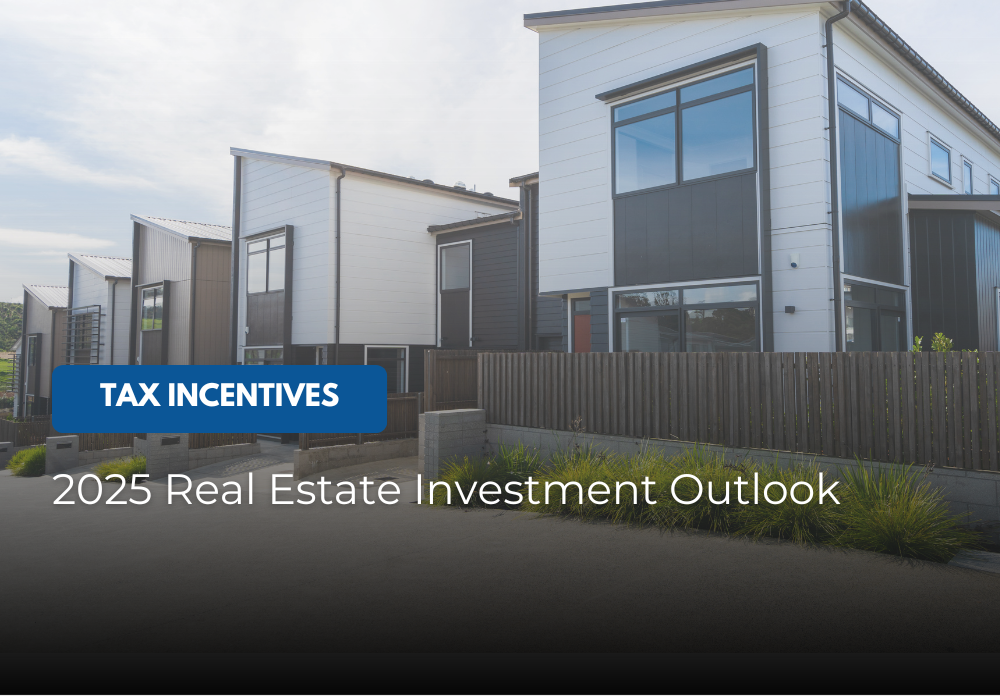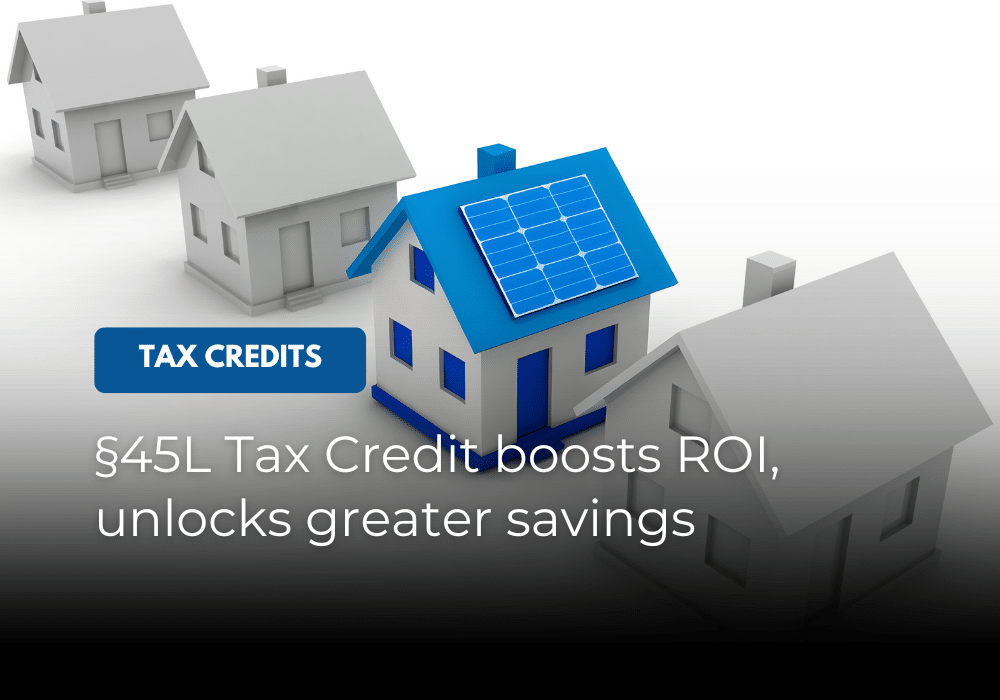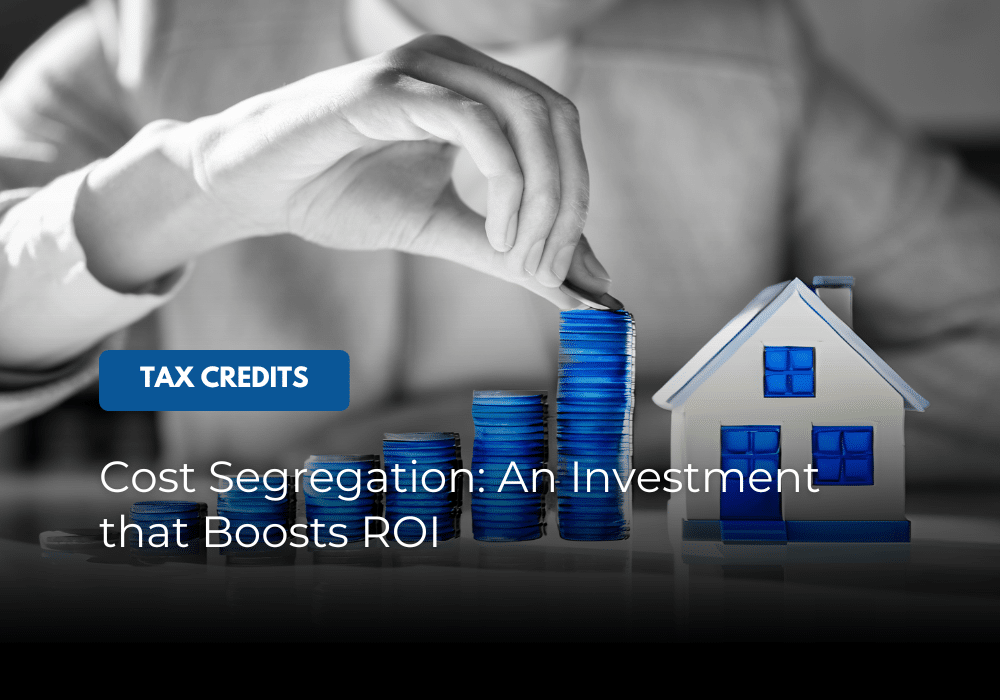The real estate market is evolving, shaped by shifting economic factors, tax law changes, and political developments. As we look ahead to 2025, understanding these trends will be necessary for real estate investors and advisors navigating this complex landscape. Here’s what you need to know about the key trends shaping the real estate investment landscape and what that means for cost segregation studies.
Decreasing Bonus Depreciation: A Changing Tax Landscape
The Tax Cuts and Jobs Act (TCJA) introduced 100% bonus depreciation, allowing investors to deduct the full cost of eligible property upfront. This provision sparked a surge in real estate activity, but it’s now on a phased reduction schedule:
- 2024: Bonus depreciation decreases to 60%.
- 2025: Drops further to 40%.
- 2026: Reduced to 20%.
- 2027: Fully eliminated.
President-elect Donald Trump and the Republican lawmakers have expressed a strong desire to restore 100% bonus depreciation. Although no formal proposal to reinstate 100% bonus depreciation has surfaced, there is increasing bipartisan interest in revisiting tax policies that promote capital investment. With the March deadline for government funding and budget negotiations approaching, the return of 100% bonus depreciation remains a possibility. Whether it is reinstated temporarily or integrated into a broader tax policy reform, the coming months will offer businesses clearer guidance for strategic investment planning. While the future of bonus depreciation is uncertain, investment property owners and businesses can benefit by consulting tax professionals to optimize current opportunities. Conducting cost segregation studies, alongside leveraging the existing bonus depreciation rates, can still yield substantial tax savings.
Elevated Interest Rates: Planning for Higher Costs
Higher interest rates, driven by the Federal Reserve’s tightening policies, continue to reshape the market. Rising borrowing costs have dampened buyer and investor activity, making affordability a key challenge. While 2025 may see slight stabilization, investors should focus on:
- Exploring creative financing options.
- Prioritizing cash flow-positive investments.
- Planning for longer hold periods to weather interest rate fluctuations.
Reduced Transaction Volumes: Adapting to a Slower Market
Elevated interest rates have also cooled transaction volumes, leading to a more deliberate and cautious market. As buyers and sellers recalibrate expectations, investors may find opportunities in less competitive spaces, such as distressed properties or underperforming assets, as well as value-added investments that benefit from repositioning or upgrades. Patience will be a key strategy in 2025 as investors wait for the right opportunities to emerge.
Election Year Uncertainty: Monitoring Policy Changes
Election years always bring an element of uncertainty, and 2024 was no exception. With President-elect Donald Trump and the Republican legislature set to take over, an effort to extend sunsetting provisions of the Tax Cut and Jobs Act, as well as reductions in capital gains rates and changes to business interest limitation deduction. There is also the possibility of new tax incentives for real estate investment. One possible incentive proposed in the Revitalizing Downtowns and Main Streets Act, would provide tax credits for taxpayers who convert older office property into residential property.
Savvy investors should:
- Stay informed about policy proposals and potential changes.
- Work closely with tax advisors to model various scenarios.
- Build flexibility into their investment strategies to adapt to new regulations.
Modest Market Stabilization: A Glimpse of Optimism
Despite these challenges, experts predict a gradual stabilization in 2025. Modest home price increases and a potential easing of interest rates could revive transaction volumes and improve investor confidence. Sectors like industrial and multifamily properties remain resilient, while niche markets such as senior and affordable housing continue attracting attention.
Increased IRS Audits: Staying Prepared
With enhanced funding under the Inflation Reduction Act, the IRS is stepping up audits, not only for complex partnerships, high-net-worth individuals, and businesses with significant assets, but also for small investors in residential rental properties. Advanced AI technology is helping the IRS pinpoint compliance risks with greater precision. Investors conducting cost segregation studies in 2025 should ensure they work with qualified professionals who use Detailed Engineering Approaches, have extensive experience in providing audit support, and can provide robust documentation to withstand IRS scrutiny.
Partnering for Success
Cost Segregation Authority is ready now to support your firm and your clients. We will gladly provide a no-cost benefit analysis on any property or improvement costs. Please reach out today, and we can start making year-end planning stress-free and impactful!


















